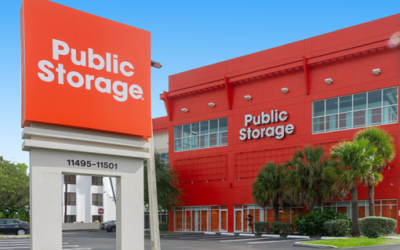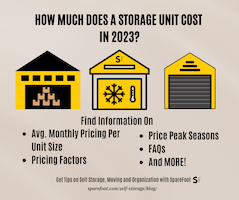Packing up and preparing to move into a new home is exciting, but it can also be stressful. To make matters more complicated, whether your personal belongings are protected by homeowners insurance during transit isn’t exactly black and white.
Fortunately, conducting a little research about your insurance coverage before the big move can help you gain a better understanding of what protection your personal belongings will have in various scenarios. You can also ask your insurance agent some insightful questions about your specific policy to gain further clarity.
When Homeowners Insurance Does Not Cover Belongings During a Move
Unfortunately, homeowners insurance generally does not provide coverage for many scenarios involved in moving. For example, say the moving company damages your personal property during the transit process from your old home to the truck or from the truck into your new home. Your homeowners policy most likely will not provide reimbursement in these instances.
Another scenario in which homeowners insurance does not provide coverage for your personal belongings is if your belongings get damaged while on the moving truck. If you unwrap your possessions in your new home and discover that something has broken between points A and B, you’re likely out of luck getting any reimbursement from your insurance company.
When Homeowners Insurance Does Cover Belongings During a Move
Homeowners insurance may provide coverage if your personal property is stolen from the moving truck, but it’s not a guarantee. It may also cover you if the moving truck is involved in an accident while transporting your property. To be sure, consult your specific policy. Remember, even if there’s coverage for these scenarios, there’s likely a strict limit on the amount.
However, standard homeowners insurance policies do offer loss of use coverage. This coverage protects the homeowner if the home suffers extreme damage or destruction to the point that it becomes temporarily uninhabitable. In such a case, the homeowner would have to seek temporary residence elsewhere. Of course, while this isn’t what you might think of as a typical moving situation, it still requires the homeowner to move to and from the temporary residence.
Loss of use coverage would pay the fees for the temporary residence, such as a hotel room, and cover fees associated with moving your property out of your home so repairs can be done. Loss of use coverage also provides reimbursement for storage units to temporarily house your belongings. Your loss of use coverage seeks to help preserve your property from further damage while you await home repairs. Personal belongings are covered during the move back to your home, as well.
Professional Movers Also Provide Some Coverage for Your Belongings
While the coverage your homeowners insurance policy provides for your possessions during a move may be disappointing, the good news is that all interstate movers are required by federal law to provide at least two liability protection options. Many intrastate movers offer these protections, too. Not every company provides the same protections, so before the move, ask the moving company about the available coverages and their fees.
Many professional moving companies offer one or more of the following liability coverage options:
- Full value protection: This policy holds the mover liable for the replacement value of your belongings. The moving company will be required to repair or replace any of your lost, damaged, or destroyed items if the damage or loss takes place while the object is in their custody.
- Released value protection: This policy offers only minimal protection of no more than 60 cents per pound, per belonging. While the protection offered isn’t much, it is typically provided at no additional charge.
- Separate liability coverage: This policy offers an augmentation to your released value coverage (if you choose to shell out the additional fee for it, of course). After the coverage provided by the released value protection by the moving company, the remainder of the loss is recoverable from the insurance company up to the limit on the policy you purchase.
Although traditional homeowners insurance policies may not offer all the protection you’d like during a move, knowing that professional movers are often required to provide their own coverage can help put your mind at ease during an otherwise stressful event.
Questions to Ask About Your Specific Policy
It helps to know about available coverages provided by homeowners insurance during a move, but it’s impossible to know for sure what your specific policy covers without double-checking. Talk to your insurance agent about your coverage, and have a couple of questions prepared when you do.
For example, you’ll want to ask your agent about your coverage limits during a move. Limits are often lower for incidents that occur away from home. You’ll also want to know the deductible on your personal property coverage, since you’ll be required to pay that amount before your insurance company will reimburse you for any losses.
Ask your agent to detail the exact scenarios in which your personal policy covers damage to or destruction of your property during a move. They can walk you through all the specifics and clear up any remaining confusion. Afterward, you might feel more prepared for your big move.
Article contributed by Paul Martin.
Paul Martin, CPCU, is an insurance professional for Trusted Choice with over 30 years’ experience in the field. Throughout his career, his mission has been to advance the insurance industry through education to be better equipped to serve the public.
Frequently Asked Questions
Does home insurance cover moving damages?
In most cases, home insurance will not cover damage to your personal property while moving. However, your policy might cover you if your items are stolen from a moving truck while in transit. Check with your insurance carrier to confirm.
Does loss of use coverage reimburse for self-storage units?
Depending on your policy, you may be able to receive reimbursement for a self-storage unit if you have to temporarily keep items during a loss of use event.



